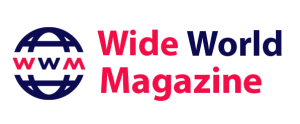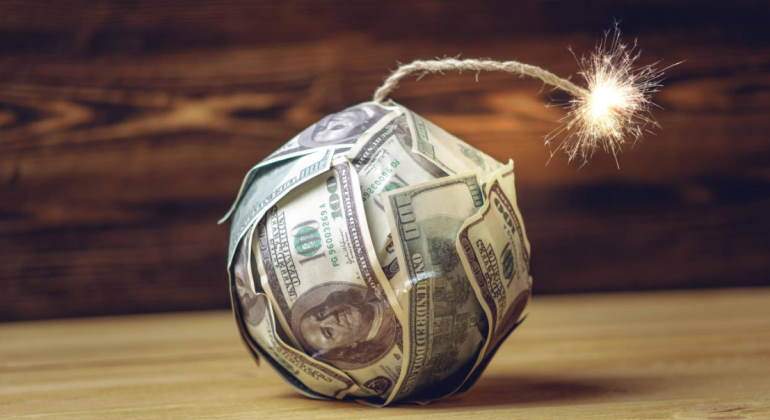The issue of inflation is currently on everyone’s lips. Is it merely transitory, as the president of the United States Federal Reserve (Fed) , Jerome Powell, has asserted time and again , or does it have a certain capacity for persistence? Will central banks, which have supported the world economy for several years by intervening in interest rates to keep them abnormally low, this ultra-accommodative policy? Or will they instead opt for a gradual normalization of their stance after more than a decade of activism against financial depression?
From the height of inflation in developed countries in 1980, inflation and interest rates entered a 40-year downward spiral, occasionally registering negative inflation and, in Europe, experiencing several years of negative rates previously unimaginable. . Of course, there have been some periods of price spikes, like 2011 or 2018, but they didn’t last long. The disinflation of the last 40 years has been possible thanks to the extremely strong wage competition of the emerging universe, the greater geographical specialization of production and the effects of technical progress on low-skilled jobs in developed countries.These factors have not allowed wages to be coupled to the price of goods and services in the vicious circle of self-sustaining inflation.
These deflationary forces, still present, together with the aging of the population and an unprecedented indebtedness of the world economy in peacetime, are the most widely adduced reasons to believe that current inflation is only transitory. While the reopening of the world economy after the pandemic has boosted prices in a context of shortages (semiconductors, labor) or disruption of transport capacities, the expected end of these bottlenecks reinforces the idea that current inflation is not here to stay. Consequently, this hypothesis is now considered the most probable, with some variations regarding the duration of the transition.
However, there is an alternative hypothesis. There are two independent dynamics that can lead to more persistent inflation.
The first is the price of energy and electricity. The energy transition to forced marches has reduced investment in fossil fuels, whose replacement does not seem as easy as expected. This has intensified the rise in the prices of oil, gas or coal, also due to recent climatic events that have reduced their production. A harsh winter could exacerbate and prolong this energy inflation, impacting the entire world economy.
The second dynamic can be observed today in the US labor market. Thanks to social programs launched during the health crisis, American households have accumulated an excess of savings of 2 trillion dollars: 11% of GDP. This allows workers to take the time to negotiate their return to work and therefore puts them in a privileged position in wage negotiations for the first time in more than 40 years, when companies require labor to service their portfolios. orders. Therefore, private sector wages have increased by 5.5% overall over the last 12 months,its biggest rise since 1982, and the labor force participation rate in the labor market is declining at a time when job vacancies are at all-time highs. Is this situation temporary or more persistent? The end of social programs, the beginning of the school year (which frees parents from childcare) and the reduction of the threat of COVID-19 in the United States will give us the answer in the coming months.
The hypothesis of a persistent inflationary phenomenon continues to be a gamble with little chance of success, but central banks contemplate it , still convinced that the decision to open or close the liquidity taps belongs only to them. If current inflation turns out to be persistent, it will be this one who sets the interest rate level again ; central banks can only execute. And the days when these institutions came to our rescue from the slightest economic recession would be over because, unlike what we have lived through for so long, inflation would impede the generosity to which they have us accustomed.
Thus, we could witness a true paradigm shift. Fed watchers, those people who closely follow the communications and decisions of the US central bank and who have learned to read between the lines and decipher what is not said to predict their actions, would lose first their power and then their jobs , because the harsh reality of inflation would be imposed on everyone. And since the probability, however small , of this return to the roots is there, the possibility of persistent inflation, with all that it implies for us, savers and investors, deserves our full attention.
How would life insurance policies in euros behave in a context of rising bond rates? Would money market products like savings accounts or bank accounts be stiff competition for fixed income investments? Will big growth stocks be able to – those companies that manage to expand their profits regardless of the pace of economic growth and that often form the core of portfolios? keep your valuations high? And what will happen to the gold or the real estate market? Yes, we must definitely reflect on the possibility of persistent inflation, however illusory it may seem at the moment.

Ron Wills is Based in Cape Town and loves playing football from the young age, He has covered All the news sections in WideWorldMag and have been the best editor, He wrote his first NHL story in the 2013 and covered his first playoff series, As a Journalist in WideWorldMag Ron has over 8 years of Experience.

